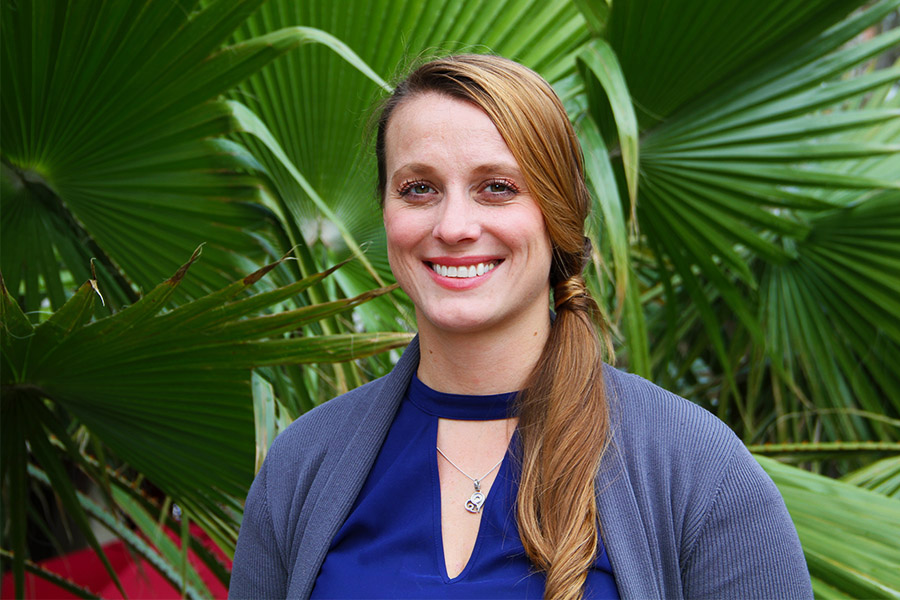FSU chemist earns NSF CAREER Award for contributions to solar energy research

A Florida State University chemist has earned one of the most prestigious awards available to early career faculty members for her work to improve solar cell efficiency.
Assistant Professor of Chemistry and Biochemistry Lea Nienhaus is the recipient of a Faculty Early Career Development Award, or CAREER Award, from the National Science Foundation for her research into light-matter interactions in semiconductors with the long-term goal of improving solar cell efficiency.
CAREER Awards are the NSF’s most prestigious awards in support of up-and-coming researchers who have the potential to serve as academic role models in research and education and to lead advances in the mission of their respective departments.
“I love the idea that this award is for more than just research — the outreach and educational component is so important,” Nienhaus said. “These awards truly help scientists educate not just our own students but our larger communities, which is something I’ve been trying to do since arriving in Tallahassee.”
The award provides funding for the researchers’ labs to support students and groundbreaking ideas while granting them an opportunity to work closely with NSF staff on developing their professional endeavors. Activities pursued by CAREER Award recipients build a firm foundation for a lifetime of leadership in integrating their education with their research.
Nienhaus joined FSU’s faculty in 2018 and teaches freshman chemistry, advanced inorganic chemistry and graduate physical chemistry in addition to leading the Nienhaus Lab, a close-knit group working together to shine a light on the details of the interface between inorganic and organic semiconductors and push the boundaries of optical spectroscopy.
This type of spectroscopy uses UV, visible or infrared light to investigate the physical, chemical or structural properties of materials. With a better understanding of these properties, the group can investigate how to convert low-energy light into high-energy light in semiconducting materials.
“The world has already entered a climate crisis, and we’re at a point where we need to switch to renewable energies fast,” Nienhaus said. “Some of the basic limitations of our current solar cells are that they can only utilize a small fraction of absorbed sunlight effectively. Our goal is to turn infrared light that currently can’t be used by solar cells into visible light that can be absorbed by standard silicon solar cells. By accessing that portion of the solar spectrum, solar cell efficiency can increase and hopefully improve our approach to green energy.”
Nienhaus is the 52nd Florida State faculty member to earn a CAREER Award since 2007. The honor came just weeks after she was named as recipient of the Grammaticakis-Neumann Prize from the Swiss Chemical Society, an award granted to a promising young scientist for commendable work in experimental or theoretical photochemistry. A rising star by notable scientific journals Advanced Optical Materials and American Chemical Society Materials Au, Nienhaus also has been featured by the American Chemical Society Energy Letters in their special edition on “Women Scientists at the Forefront of Energy Research.”
“I am pleased to congratulate Lea on this latest award, which adds further prestige to her portfolio and that of our excellent Department of Chemistry and Biochemistry,” said College of Arts and Sciences Dean Sam Huckaba. “Lea’s research is in high gear, and she is consistently making high-quality contributions to our academic mission.”
Visit the Nienhaus Lab online to learn more about her work.
